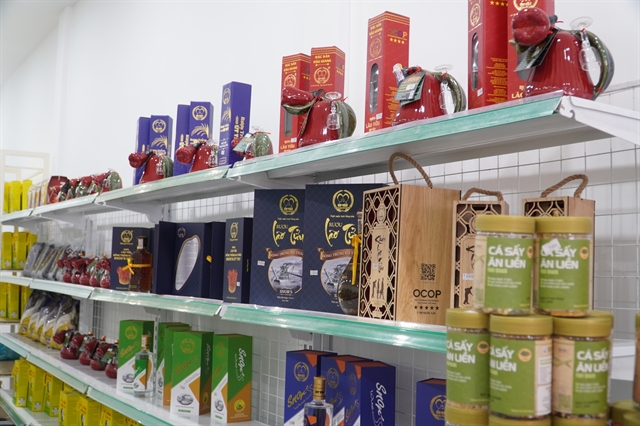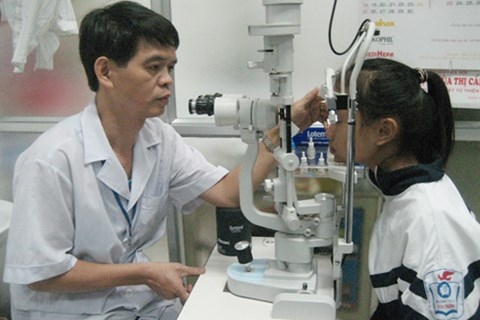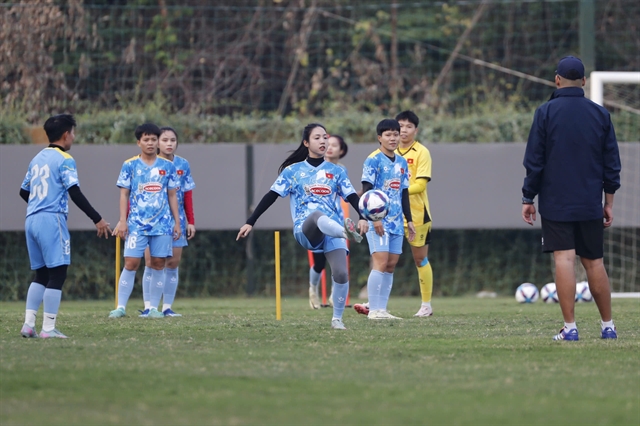 Society
Society

Doctors have warned of possible outbreaks of seasonal diseases such as pinkeye, viral fever and respiratory tract infections.
 |
| A student receives eye examination in Hà Nội. Doctors have warned of possible outbreaks of seasonal diseases such as pinkeye, viral fever and respiratory tract infections. — Photo anninhthudo.vn |
HÀ NỘI — Doctors have warned of possible outbreaks of seasonal diseases such as pinkeye, viral fever and respiratory tract infections.
The Hà Nội-based Paediatrics Hospital has recorded more than 30,000 patients this month. It sees an average of 3,000 children patients a day, approximately 25 per cent higher than normal.
The young patients are often reported to suffer respiratory diseases, as well as pneumonia, gastrointestinal disease, viral fever and dengue fever.
Similarly, the Paediatrics Department of Bạch Mai Hospital has lately received an increased number of patients for the treatment of respiratory diseases. It has reported receiving about 400-500 patients per day, with more than half of them suffering diseases related to respiratory problems and viral fever. Many children have been hospitalised several times in a short time because of re-infection.
Doctors of the two hospitals explained that the reason behind the increasing number of paediatric patients was because the weather in the North was in a transition period with hot weather in the daytime and chilly weather at night that reduced the resistance of children.
Besides, the concentration of bacteria and increasing viruses in the air made children susceptible, they said.
Meanwhile, the Ministry of Health’s Department of Preventive Medicine has warned that erratic weather would enable bacteria that cause pinkeye disease.
Doctor Lê Xuân Thủy from the department said that pinkeye is a very contagious disease and spread easily in the community.
From mid-August until now, the number of patients diagnosed and treated for pinkeye at hospitals in Hà Nội has reportedly increased and exceeded normal days.
At the Central Eye Hospital, the number of patients suffering pinkeye coming in for diagnosis and treatment accounted for about 11-12 per cent of the total number of all patients.
Thủy said the main causes of pinkeye disease are adenoviruses or bacteria such as streptococcus, staphylococcus and pneumococcus.
“A dirty environment, poor sanitation, contaminated water use, and shared living supplies such as towels and pillows are favourable conditions for developing the disease and spreading outbreaks,” Thủy said.
Thủy noted that pinkeye could spread through the respiratory tract, tears, and saliva, as well as by shaking hands, holding, touching items contaminated with pathogens such as door handles, stair knobs, telephones; shared objects and the personal belongings of the patients, such as towels and washbasins.
He said any suspected case of pinkeye disease should go to medical facilities for examination, counseling and treatment and should not be treated by traditional Vietnamese methods such as applying leaves like betel leaf and mulberry leaf onto eyes. — VNS




